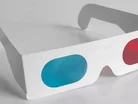Watching films in 3D can highlight vision problems

Eye experts are claiming that going to the cinema to watch films in 3D can help to identify vision problems.
It comes after the release of Harry Potter and the Deathly Hallows – Part 2, the final instalment in the popular wizarding franchise.
They are urging cinema goers to see an eye specialist if they experience double vision, headaches or dizziness while watching the film in its 3D version.
These symptoms have been linked to a range of eye problems, including squints and lazy eyes, and sufferers of such conditions are unable to see 3D effects properly.
READ MORE FROM THE WDM CONTENT NETWORK:
To read the latest edition of Healthcare Global, click here
- Patients are healthier if they have a polite doctor
- Passive smoke can damage hearing
- Employees sickness lies cost economy£32 billion
3D technology requires both eyes to work together and optometrists believe that any discomfort or difficulties while watching a 3D film can be a sign viewers’ eyes are not functioning correctly.
However, the experts have been quick to defend 3D technology, saying they have no concerns that these types of films can cause vision problems.
“There is no evidence to suggest using 3D technology can damage the eyes,” said Dr Susan Blakeney, from the London-based College of Optometrists.
“If you can’t see the 3D effect, or feel dizzy, tired or uncomfortable when viewing 3D and have not had this problem investigated before, we recommend an eye examination.”
Research carried out earlier this year also found evidence that 3D can be linked to eye problems but again, no cause for concern was raised.
Visual ergonomics researcher, Peter Howarth, said while writing in the Ophthalmic and Physiological Optics journal: “Although people have reported headaches and eyestrain when watching 3D content, no studies have detected any permanent damage caused by 3D.”
